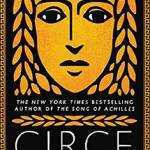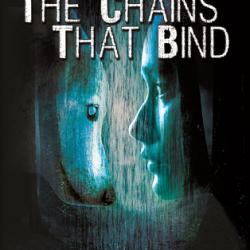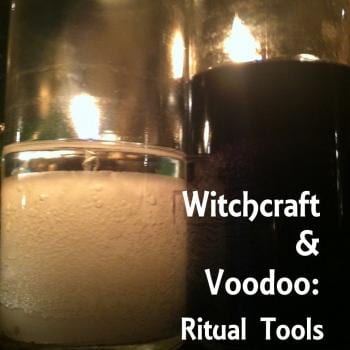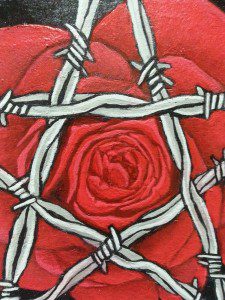
A few days ago now, Melissa Hill wrote in her new column “Dandelion Seeds” that she thinks that “Polytheism and Polyamory are a Natural Combination.” I remember how difficult it was to be a new columnist, and how spectacularly I stuck my foot in my gob more than once, so even though Yvonne Aburrow took her to task about some of her commentary regarding polyamory vs. monogamy, I am not intending to be as harsh. But I do have some objections to things that were stated in the article.
As my regular readers probably know by now, I’m polyamorous. I live in a committed polyfidelitous trio. I am married legally to Erin; I’ve been with him for about twenty years, married for ten. We are also in a relationship with Jamie, who was a good friend and my lover for many years before he came to complete our trio two years ago. For the most part we’re just like everyone else, except that the poles around which the relationship move are different.
I have never been monogamous, as far as I can tell, though I tried; I really, really tried. To complicate matters I am also bisexual. I fully absorbed our culture’s beliefs about how “good girls don’t like sex” very well; so well that I was anorexic and bullemic by the time I was fifteen; which, experts will tell you, is partially a tool to repress one’s sexuality.
My very first long-term relationship was with my high school sweetheart. I gave him my virginity when I was sixteen after two years of dating. By the time I was eighteen, however, I was also in a relationship with a lovely girl named Erin, with full consent of both of my partners. I suppose I never would have been, since I was trying so hard to be monogamous, but my boyfriend Brian’s family moved away; he didn’t move back until I graduated from high school. I was honest with everyone; we tried to figure out how to make it all work. Rejecting the culturally-proscribed ideals of love, relationship and sex was relatively easy by then, since I’d already been required to do all of that in order to claim my sexuality in the first place and I was in the process of coming out; far more scary to me then than having two relationships.
So I’ve done this polyamory thing for a long time. I’ve joined Facebook groups and Yahoogroups before that, trying to figure all this stuff out. And I have some thoughts about the polyamory thing that are probably not what you’d expect. You see, while I was spurred to write this by Melissa’s article, I don’t think much of what I’m taking exception to is directly a fault of Melissa’s. I think a good deal of it is the narrative that the poly community spins for itself that’s the problem.
That narrative is one that was necessary in order to gain self-acceptance in our culture, in which monogamy is assumed to be the default, and people are criticized as being morally deficient somehow if they are not monogamous. But I think this narrative is immature and potentially damaging; and that’s the narrative that says that love is free and infinite; that monogamy is about possessiveness; and that the only thing that stops a person from having infinite loves are their own moral deficiencies of possessiveness and jealousy. Friends, I’m here to tell you after more than twenty years of polyamory, and some really hard lessons, it’s just not true. Furthermore, I think this attitude is reckless and can lead to heartbreak where there doesn’t need to be any.
This belief — that what we call jealousy is a result of one’s own personal failings — has led both myself and my spouse into situations in which we felt that we could not say no when the other started a relationship that made us feel threatened. When it was me who felt threatened, I felt that I had no option but to accept the new girlfriend because I was a bad person if I refused. The girlfriend was much younger than I was, and prettier, and certainly I had reasons to feel threatened. But there was also a subconscious awareness that she was not concerned about my fate at the time; she was lonely and I was an obstacle. I felt like a failure because I was unable to get over my own jealousies and self-doubts. Eventually they broke up and our relationship survived and got past the point of crisis.
Years later, it was I who was in a relationship with a much younger man and my husband and then-boyfriend who felt threatened. I was angry. When I was the one who was concerned, I was expected to shut up and swallow my fears. Knowing this, my husband found himself in a position in which he felt that he would be a bad person if he expressed his feelings and fears, and Jamie, who had never really been in a polyamorous relationship before, felt that he should follow Erin’s lead. That was unfair to them and I never should have put them in that position. But I honestly didn’t realize that they didn’t feel that “no” was an option. When I realized how badly I was hurting our relationship, I ended the affair. I didn’t want to, but that’s what our relationship needed and so I did it.
The poly community would spin this story as me being controlled by two of the three men in my life. They would be wrong. I realized that if I truly was devoted I needed to make a sacrifice, as my husband ultimately had several years ago when faced with a similar situation.
My partners and I are also swingers. We play grown up games with other people. We don’t try to have relationships with them. And why should we? I think the idea that we must love everyone we have sex with is leftover morality we haven’t seriously thought about yet. The truth is that this subconscious belief is what created the problem with the younger man I was involved with. I had a very powerful sexual attraction, and I cared about him. Surely that had to be love? Otherwise I would be a bad person, right?
But there’s nothing in Pagan ethics that supports this need to love all of our partners. I think it’s residual societal programming; good girls don’t have sex with people they’re not in love with, after all. Well, why not? For a Pagan, there’s resounding silence instead of an answer. For a Wiccan, there’s even encouragement, because “all acts of love and pleasure are Her rituals.” Surely if we believe in equality of the sexes, women can have sex because they want to, for their pleasure, also? As long as there is consent all around — from the person you’re having sex with, from your partner(s), from their partner(s) — then what’s the harm? And if there’s no harm, are we not encouraged to do as we will?
Nor are we required to love only one person by any sort of Pagan ethic, which is probably why polyamory isn’t uncommon among Pagans. However, we are required to keep our oaths and to be true to our word; to love fully, and to be honourable.
Melissa made an excellent comparison; she said that she believes that polyamory and polytheism go together. Many gods, many loves, all intertwining. I don’t think she’s wrong. But I don’t know a single polytheist who calls on a different god every week, magically changing Them out according to mood and whim. Actually, more serious polytheists tend to look down on “fluffy Wiccans” whom they perceive as doing that.
In both cases, you can love many people, and many gods, and those loves can be intertwining and infinite. But in order to have a relationship, you require devotion.
noun1.profound dedication; consecration.2.earnest attachment to a cause, person, etc.3.an assignment or appropriation to any purpose, cause, etc.:
the devotion of one’s wealth and time to scientific advancement.4.Often, devotions. Ecclesiastical. religious observance or worship;a form of prayer or worship for special use.
(Source: Dictionary.com)
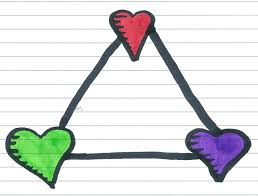
To be in a relationship, you surrender a portion of your individuality. You become not me but we. Of course you should never completely surrender all of your individuality and autonomy, but definitely there must be compromises. Autonomy is partially expressed in your choice to accept the partnership and to make those necessary sacrifices. Devotion demands this; an offering of a part of ourselves, our time and our will. If you’re not willing to do that, you’re not in a relationship.
Where I believe that the polyamorous community is failing is that we make it incumbent upon the person feeling concerned for the health of their relationship to “get over it” and “stop being jealous.” This, in my view, a very poor way of looking at things. A person with concerns might have good reasons that have nothing to do with possessiveness. The belief that this person is the one failing the relationship can become a form of victim-blaming. It also allows for predatory and abusive people to destroy relationship after relationship because the partner who is being threatened is portrayed as the faulty party for having those feelings.
I expect a lot of angry polyamorous people are about to pipe up in the Comments section about how it’s “all about communication,” and “if these things are going wrong it’s because you’re not communicating enough.” This may be true, but what I’m saying is that the paradigm that jealousy is the result of possessiveness and fear is colouring the dialogue in such a way as to make real communication impossible. It’s not a yes if your partner feels that they have no right to say no.
What would polytheism look like if worshiping multiple deities were like this? We who have been doing this a while shake our heads at the Pagans who seem to flit from pantheon to pantheon, who have a different patron deity each week and who call a hodgepodge of Them into each circle. I have been working with Brighid for some time. When I started working with Erzulie, should I not have given Brighid a say in that? Would She have been “being jealous and possessive” if She’d let me know that She felt that working with Erzulie would take away too much time from working with Her?
Now I admit, not all of us can give ourselves fully to one God, just as not all of us can give ourselves entirely to one Love. I don’t think that polyamory is any better or worse than monogamy; just as I don’t think that polytheism is any better or worse than monotheism. They’re just different. Obviously I have come to a good place in that I accept my polyamory and my polytheism and choose to live them with as much openness as I can. There’s nothing wrong with having more than one god, or more than one love. But to have a relationship you must have devotion. And if you don’t, that’s not love, and it’s not faith either.
If you’re interested in supporting my work, I have a Patreon account. Thanks for checking it out!
Like Between the Shadows on Facebook and never miss a post!








